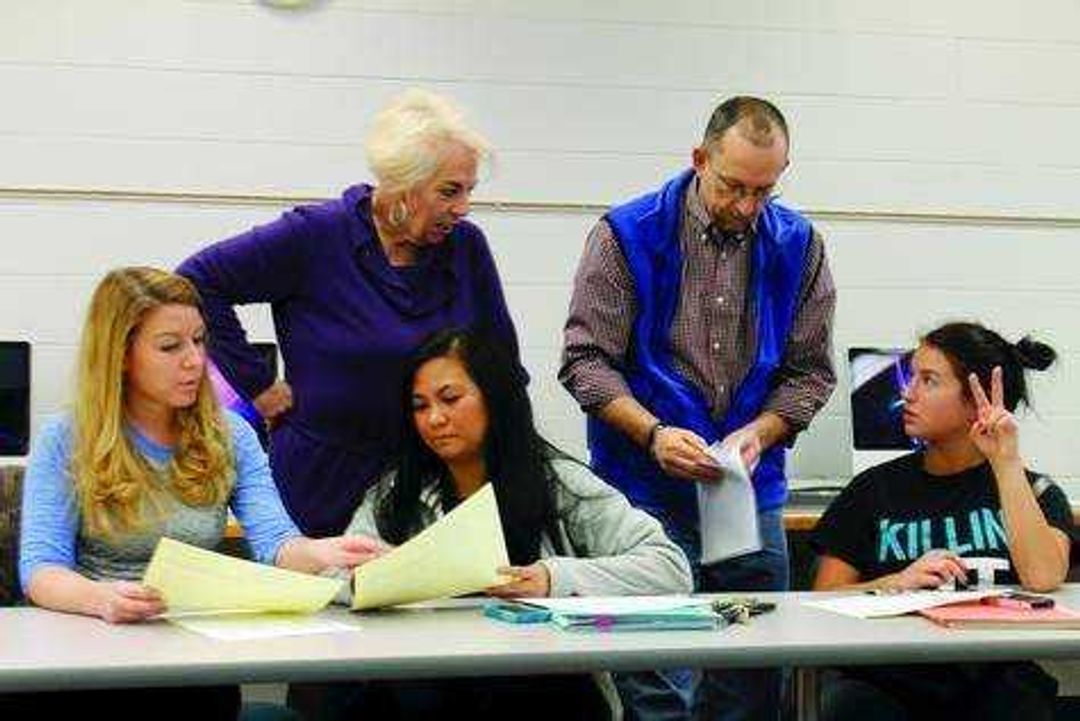Mass media department recommended for full accreditation
The Department of Mass Media at Southeast Missouri State University has been recommended for full accreditation following a visit by the site team from the the Accrediting Council on Education in Journalism and Mass Communications.
The Department of Mass Media at Southeast Missouri State University has been recommended for full accreditation following a visit by the site team from the the Accrediting Council on Education in Journalism and Mass Communications. The department has been provisionally accredited since 2010.
"This says we are on the right track, however it plays out," said Dr. Jack Zibluk, the chair of the Department of Mass Media. "Now, this is just a recommendation. We have to have it finalized by two committees and then by the whole accreditation agency this summer. So, it's not final, but this is the turning point that everybody says we have done almost everything right and we're on the right track."
Zibluk was told the department was being recommended for full accreditation within a day of the two-person committee leaving the campus.

"I think it's important," said Stephanie Smith, a senior who is studying public relations at Southeast. "I think it looks nice to be from an accredited program because more people take you seriously in what you're doing."
The members of the committee from the ACEJMC visited the campus in 2010 and found some aspects of the program lacking, so the members granted the department provisional accreditation.
Provisional accreditation means that during a site visit, the committee finds some aspects of a program lacking, and, if the changes are made, the program likely will be able to earn full accreditation again within a few years.
There are nine standards that each accredited program must meet. The members of the committee said there were three areas that Southeast needed improvement, which were curriculum, assessment and governance.
The members of the 2010 committee said the department had too many options within its degree program.
The department was renovated last fall from five options to four options and no longer offers a bachelor of arts degree, only a bachelor of science degree.
The department now offers a bachelor of science degree in mass communication with options in TV/Film, public relations, advertising and multimedia journalism. The department had been offering five options and two degrees, a bachelor of science degree in TV/Film, public relations, advertising or radio and a bachelor of arts degree in journalism.
The committee liked the reduction.
According to Zibluk, assessment issues were addressed with the development of Student Learning Outcomes. SLOs are a list of objectives and goals that each faculty member must teach their students and what students should be learning from their classes.
"In the one area we were a little short, and that would be assessment, which is making sure that you are actually learning something," Zibluk said. "After classes we give you tests, and then we make sure that you retain some information and that we're not just throwing stuff at you. So that's what assessment is about. We're a little behind where other schools are on that one, but we're doing all the right things to make sure that that's in place."
The right things include SLOs. SLOs are now required to be developed in every class across the university.
"It says this is what we expect you to learn, and we're taking measures to make sure you're learning, so we have in tests a couple of embedded questions to measure if you've actually learned something," Zibluk said. "What I've required, too, is to have every teacher at the end of every class say, 'This is what worked, this is what didn't work. This is how we can do better.' Every class, every time, we are trying to do better. And we enforce the things we're doing well."
The committee in 2010 listed governance as another concern. According to Zibuk, there had been three chairs in seven years before he was hired last year, creating unstable leadership that the committee did not approve of then. He also said that the upper management had stabilized since 2010 during the first visit.
Zibluk said the faculty members and the former chair, Dr. Tammy Baldwin, worked hard to improve in all the areas the department was marked down in.
"I kind of tied the ribbon on top of the cake," Zibluk said.
There are only two schools in the state that are accredited, the University of Missouri and Southeast.
"We do that to make sure you are getting the best deal possible," Zibluk said.
The ACEJMC evaluates mass communication programs at universities and colleges across the nation. Zibluk said over the summer the department will find out if it has received full accreditation.
"They liked us," Zibluk said. "And that goes a long way."
If the program gets re-accredited, the next site visit will be in 2016.
"The students are getting the biggest bang for their very high bucks," Zibluk said.







